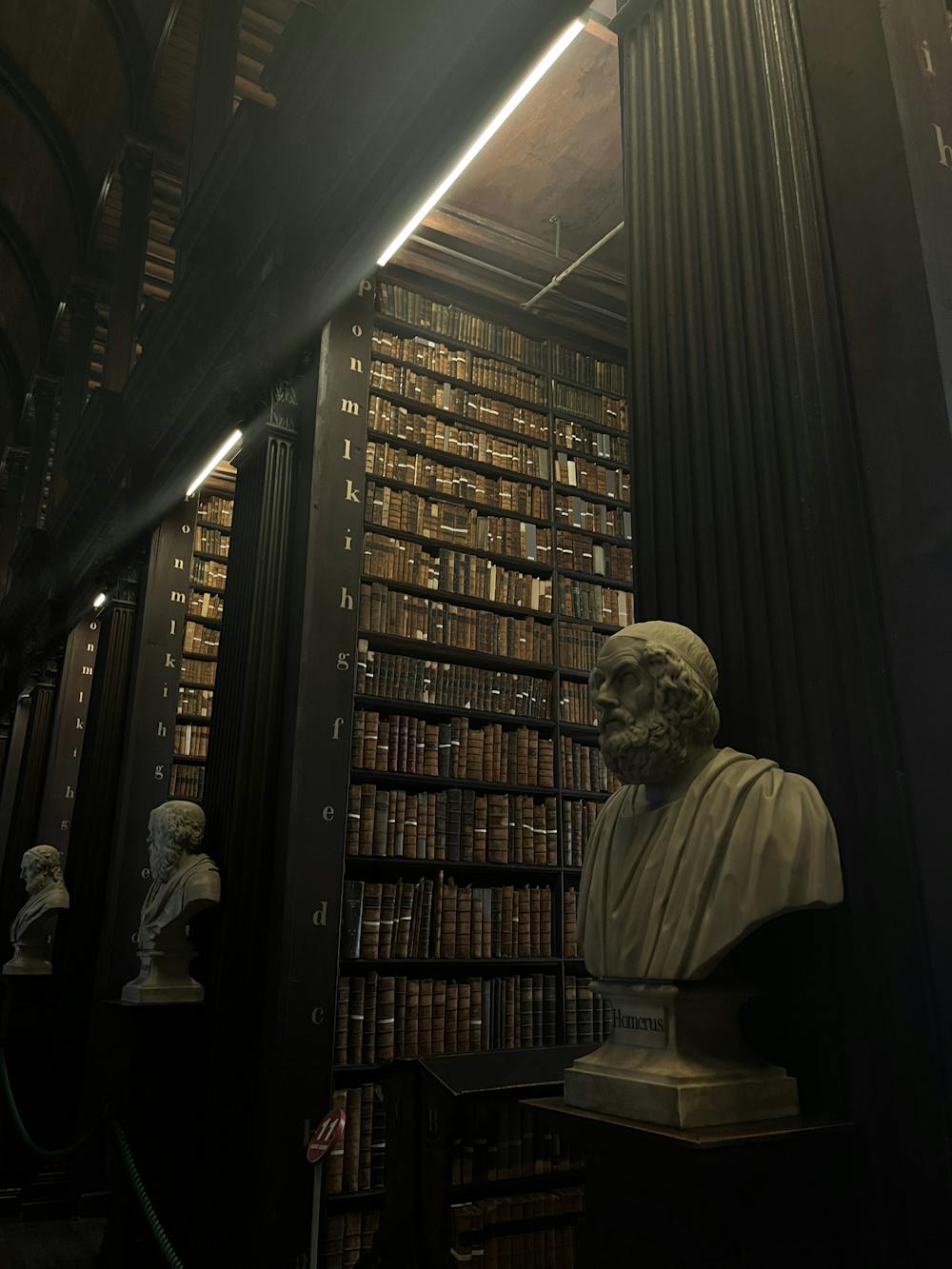We English majors confront this certain truth on the regular: there are only seven original stories … which means that the one you’re writing has already been written. According to Christopher Booker’s theory, every TV show, Broadway musical, Netflix rom-com, AP-Lit requirement or Taylor Swift music video all stem from just seven basic plots. Every idea you’ve ever conceived and every dream you’ve ever had can all be categorized into these seven plots:
- Overcoming the monster (Think “Beowulf” or “Jaws”)
- The quest (“The Iliad” or “Finding Nemo”)
- Rags to riches (“Cinderella,” Mark Twain’s “The Prince and the Pauper” or Barbie’s “Princess and the Pauper”)
- Voyage and Return (“The Lion the Witch and the Wardrobe”)
- Comedy (Virtually any work by Jane Austen)
- Tragedy (“The Lion King”)
- Rebirth (“A Christmas Carol” or “Despicable Me”)
Take a closer look at the contents of section six, and you’ll realize that “The Lion King” is really just a retelling of “Hamlet.” The blockbuster of summer 2023 — Glen Powell and Sidney Sweeney’s “Anyone But You” — is really just “Much Ado About Nothing.” Evidently, the majority of popular culture is Shakespeare under a different lens. I once had a teacher tell me that every narrative ever written is actually just a mimicry of Dante Alighieri’s “Divine Comedy.”
I am not quite convinced by Booker’s “seven plots” philosophy or my professor’s cynicism. However, I can admit that in today’s consumerism-driven culture, it may feel impossible to be unique. Because of the availability of media, it seems as if everything we publish or see published is just a rendition of something someone else has done before us. And not only has this omnipresent “someone” already done it, but they’ve done it better.
Even telling the story of my own life for applications and interviews seems clichéd: a diverse girl growing up without much diversity. Post-grad recruiters want to know what makes me special — but everything that makes me special also makes someone else halfway across the world special, except that she has twice as many volunteer hours as I do. For every trite interview question (“What’s your greatest weakness?”), there is an equally pedestrian response: (“I just put too much on my plate” or “I’m a people pleaser”). In a world where everyone has an angle, what will make you stick out? If you’re too humble, you risk sounding obtuse. Too acutely braggadocious, and you’re off-putting.
After the first day of my internship, my aunt told me bluntly: “Part of becoming an adult means realizing that you’re not special.” When we enter the real world, our student body president or AP-scholar charm will quickly rub off. We will become just another smart kid from a midwestern school. We’ll take desk jobs and join intermural sports leagues. We’ll be stereotypical and threadbare, like the newest “Pirates of the Caribbean” movie: so watered down, no one will be able to remember what initially made us alluring.
But even Shakespeare himself was not completely original. He stole Romeo and Juliet from an ancient tradition of tales about star-crossed-lovers. Adam and Eve’s fall in Genesis was very similar to other creation myths, from the Aztecs to the Fan tribes in West Africa. It seems that even those archaic stories which we have the habit of retelling are nothing more than echoes of what our ancestors read on the cave walls that predated them.
Humans are storytellers. We are distinct from the rest of creation not just because of our opposable thumbs. Our creativity, our ability to imagine and visualize and our language to communicate this makes us unique. Our legends and fables began as spoken recitations, passed down generation by generation. So maybe it’s okay that the things we read and write, the novels we craft and purchase, the songs we listen to, the interview responses we blurt out and the movies we watch aren’t original. Maybe no one was ever really original at all. Perhaps that’s what storytelling has always been and will always be.
Gracie Eppler is a senior business analytics and English major from St. Louis, MO. Her three top three things ever to exist are '70’s music, Nutella and Smith Studio 3, where she can be found dancing. You can reach her at geppler@nd.edu.










